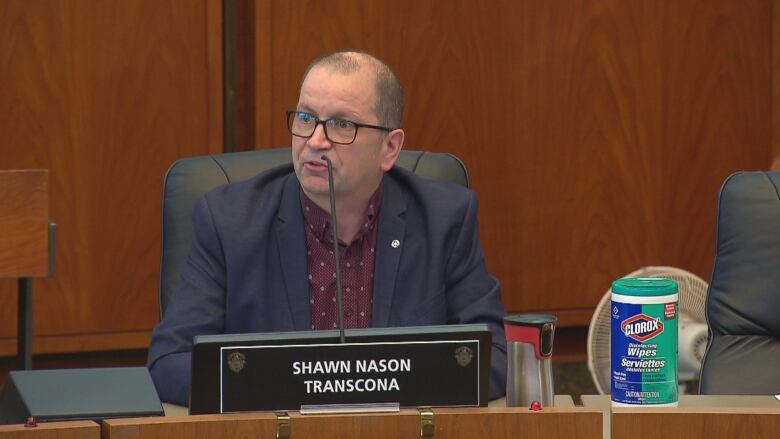Winnipeg moves closer to policy that would encourage city contractors to offer training, mentorship
Social procurement policy would obligate companies who get city work to support social, sustainable practices

A proposed new policy could mean companies who want to work for the City of Winnipeg will have to show they are building more than roads or bridges, or fixing the roof of a library.
City council's executive policy committee voted Wednesday on proposals for a social procurement policy, which would award points to a company's bid if it sets aside jobs for under-skilled workers, or includes training or mentorship for people who have criminal records or other barriers to employment.
The idea has the support of a number of social enterprise agencies, including BUILD Winnipeg, the Canadian Community Economic Development Network and Mother Earth Recycling.
The executive policy committee voted on two separate motions on Wednesday to add this kind of direction to Winnipeg's procurement policy.
In a submission to the committee, BUILD (Building Urban Industries for Local Development) Winnipeg — a non-profit social enterprise contractor and training program for people facing employment barriers — said the proposal is an exciting idea.
"Each dollar that is spent at a social enterprise means a chance to reunite a child with their parents, a gang member choosing a new life away from crime, or the simple infusion of hope into an otherwise bleak life," wrote BUILD Winnipeg executive director Sean Hogan.

One motion, brought forward by Coun. Shawn Nason (Transcona) would have set a social procurement requirement of up to a 30 per cent value of any City of Winnipeg contract.
"It's finding a way to support some of those individuals that we have in our city that face multiple barriers, to get them on a pathway to prosperity … the types of things that we aspire to as a city for our citizens," Nason said.
The second motion, championed by Coun. Markus Chambers (St. Norbert-Seine River) was more cautious and did not set a hard numerical target. Rather, it called for "a goal of establishing a bid value for community benefits, consistent with the practice of other comparable Canadian municipalities."
"Toronto has a great model. Vancouver and Calgary have great models," Chambers said.
"We see in collaborations like this, it effects things like health and well-being, reduction of crime, reduction of poverty, which all help build community capacity."
When it came to a vote, EPC members chose Chambers's version, asking city administration to write a report on the impact of such a policy and report back in 120 days.
The committee also asked administration to get private sector feedback and calculate, where possible, what costs may result from adopting the strategy.
Nason told reporters he was comfortable with EPC's decision, saying he was pleased the idea was moving further.

The inclusion of industry perspectives was important to the Winnipeg Construction Association, which wrote to Mayor Brian Bowman asking to be involved. The association also asked that any social procurement policy "maintain a fair, open and transparent tendering process."
Bowman supported the idea of a social procurement policy in general terms, saying "the benefits are not lost" on him.
But he expressed concerns about how it might impact the cost of some city contracts, especially larger projects such as the $1.8 billion North End Water Pollution Control Centre.
"I'd like to find a path forward … but we do owe it to taxpayers to find out what it costs," Bowman told his colleagues on the executive policy committee.
